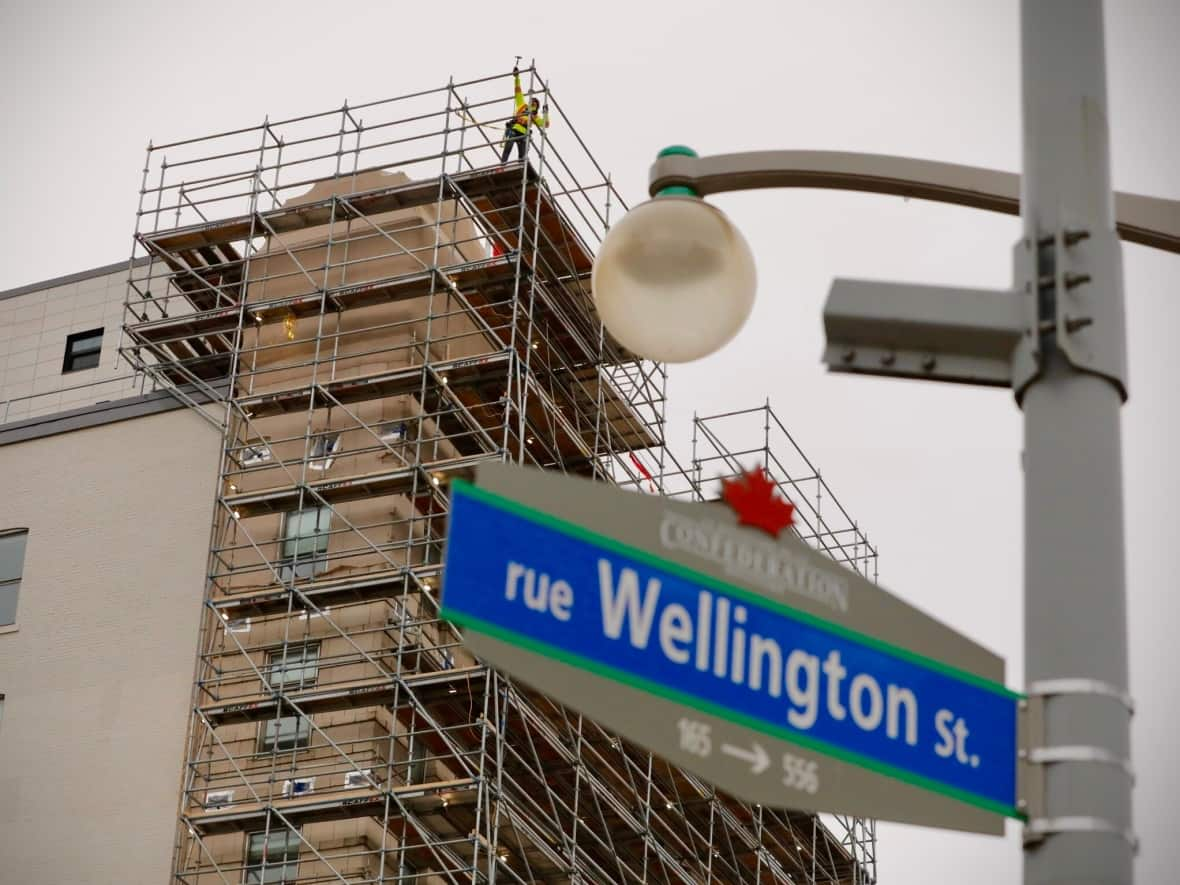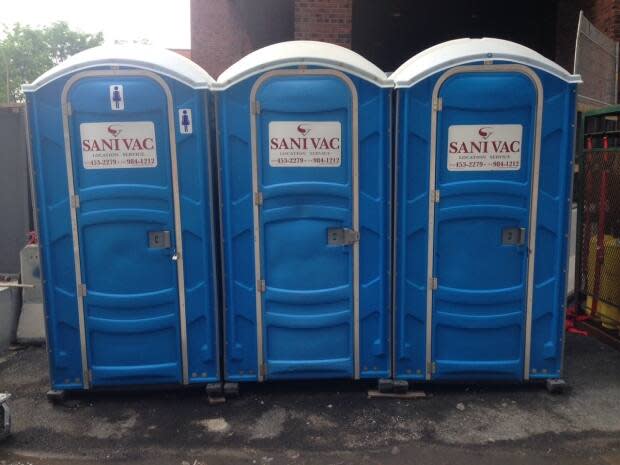Washroom legislation for construction sites 'concrete' action to attract women

Women who work in skilled trades say it's something many, if not all, have experienced on a job site — having to leave the work site to find a clean, private bathroom.
Laura Hutt says she wasn't ready for such a hindrance when she got into the industry.
"I had no idea when I first showed up," said the founder of Women in Steel Toes, a networking site for women in trades.
"I remember the first job I ever worked, the washroom was so far away that it was actually closer to go to the local Tim Hortons."
Earlier this week, Minister of Labour Monte McNaughton announced proposed legislation to raise standards for bathrooms on construction sites.
An inspection blitz last month at 1,800 sites found 244 violations including lack of cleaning, privacy and in some cases, just no toilets at all.
The legislation would double the number of washrooms on construction sites, and "require washrooms to be private and completely enclosed, adequately lit and have hand sanitizer where running water is not possible," he said during the announcement.
It would also require at least one women's washroom on a site.
'Burst to your confidence'
Gen Ellis, a journeyperson boilermaker welder with local Union 128 in Niagara, said she saw the need for change early in her career.
There were two women working on the job and they had received access to a single stall washroom that had a lock.
It was in a busy area of the site, near the place where workers stored their tools, but it had a lock so she felt comfortable using it.
"I have my overalls, and I'm taking everything off because that's what women need to do to use the washroom," she said on CBC Radio's Ottawa Morning Friday.
That's when the person tasked with cleaning the washroom used their key and opened the door.
"Everyone got a good view of me using the washroom and then after that the labourer and I, when we met walking on the job site, he would kind of look at the ground because he was pretty ashamed," she recounted.
"When you're in your early 20s, right, and being new to a trade, that's like a huge kind of burst to your confidence."
PPE, child-care barriers to entry
France Daviault, CEO for the Canadian Apprenticeship Forum, said while the proposed legislation is a step in the right direction, there are still countless barriers to attracting more women into trades.
Proper personal protective equipment (PPE) and child-care options are two main barriers, which affect Hutt and Ellis.
It's not just talking about inclusion. It's about doing something tangible. - France Daviault, Canadian Apprenticeship Forum
The proposed legislation requires PPE to be properly fitted, which can be a safety issue.
"You show up on site and often your company will give you company-issued PPE — half the time it doesn't fit," Hutt said.
"Some sites are mandated to wear gloves and you just don't have gloves that actually fit your hands. So it might even be more dangerous to wear these big baggy gloves."
Child care also presents a set of challenges due to the length of many shifts, Ellis said, as she sometimes works almost 12 hours straight.
"Or when we do work like the afternoon or the night shift, there's really no child care available for someone, especially if they were a single parent looking to go into the skilled trades that would offer a proper safe child care for someone," said Ellis.

'Concrete step'
Daviault said harassment also remains a major barrier to making construction an appealing job for women, who only make up one of every 20 construction workers.
"I would say the biggest barrier is the perception that women have of, 'what it's like to be on a work site?' And unfortunately they're not wrong," she said.
"I'm not saying that all of the work sites have these issues ... but until the environment changes on a work site I'm afraid that it's going to be very, very hard."
Daviault said the proposed legislation is important because of what it does, and also the message it sends.
"It's a concrete step. It's not just talking about the importance of it. It's not just talking about inclusion. It's about doing something tangible," said Daviault.
"It's sending a message and that is equally important and I hope that people hear it."


